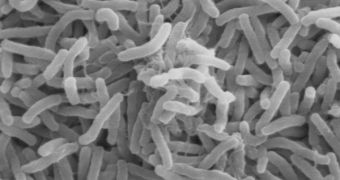It's common knowledge that most of the bacteria in the human gut help digestive processes. They break down large molecules in food and allow the intestines to assimilate tiny nutrients and energy. In exchange, they receive nourishment. But some species of bacteria are more helpful than others and a select few play a crucial role in the way our gut works.
Researchers at the UT Southwestern Medical Center discovered two types of bacteria that favor absorption processes inside our intestines. They activate a receptor molecule, called Gpr41, which helps slow down the food, so it can be fully processed. As a direct result, the host body gains weight, because more nutrients are extracted from a given quantity of food.
The lack of this receptor means that the food will pass through the digestive system faster than normal and that fewer nutrients and energy will be assimilated by our bodies. The scientists made this discovery by analyzing genetically-altered mouse subjects in a controlled environment. Those that were bred without the receptor molecule were considerably slimmer than the others, although they received the same amounts of food.
Molecular genetics professor Dr. Masashi Yanagisawa, at UT Southwestern, senior author of the study, says that, by understanding the exact way in which Gpr41 works, scientists might be able to synthesize yet another way of reducing the influence of the protein in people suffering from certain forms of obesity. "It's quite possible that blocking this receptor molecule in the intestine might fight a certain kind of obesity by blocking absorption of energy from the gut."
Another important discovery that the team made was that the lack of this specific protein doesn't adversely affect the host system. Admittedly, less nutrients and energy are absorbed, but, overall, the lack of Gpr41 doesn't pose any health risks whatsoever. Researchers are now focusing on starting human clinical trials, in the hope that they will someday be able to cure at least a portion of the population suffering from obesity.

 14 DAY TRIAL //
14 DAY TRIAL //